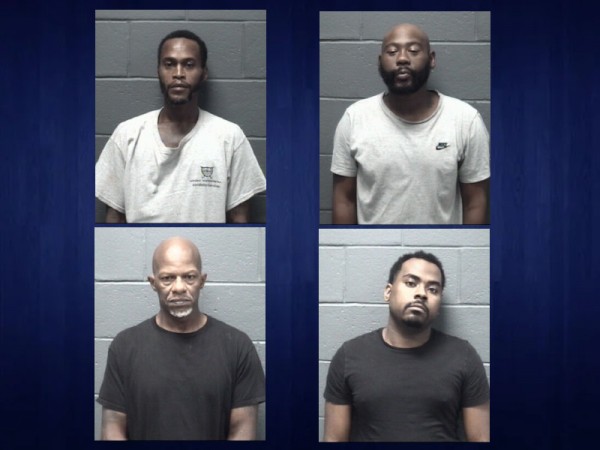The Supreme Court of Georgia released its opinion on an appeal from a 2020 murder case out of Jackson County on Tuesday.
On Feb. 4 of 2020, Karen Michelle Whisnant shot and killed her husband, Michael Whisnant.
Indictment and conviction
Karen was indicted days later by a Jackson County Grand Jury on Feb. 13 on charges of malice murder, felony murder predicated on aggravated assault, cruelty to children in the second and third degrees, possession of a firearm during the commission of a felony, and possession of a firearm by a convicted felon.
Karen only pleaded guilty to the possession of a firearm by a convicted felon charge, and was tried by a jury on the other charges in January of 2023.
The jury found Karen guilty on all charges except for the malice murder charge, and she was sentenced to life in prison plus 25 years in July of 2023.
Karen Whisnant’s motion for a new trial, Supreme Court of Georgia’s opinion
Karen filed a timely motion for a new trial, and in October of 2024 the trial court denied her motion for a new trial. She then filed an appeal, which was sent to the Supreme Court of Georgia.
Karen contended that the evidence was not sufficient to support her convictions, that the trial court erred in declining to grant a new trial based on the general grounds in Georgia code, that the verdict was “contrary to the principles of justice and equity” and strongly against the evidence, and that the trial court failed to consider her defense of battered person syndrome when it denied her motion for immunity from prosecution.
Battered person syndrome refers to the psychological effects of people who endure ongoing abuse from intimate partners.
“Whisnant’s claims fail. The evidence was constitutionally sufficient to support her convictions, because there was no dispute that Whisnant shot and killed Michael,” the opinion by the Supreme Court of Georgia read.
In his opinion, Justice Andrew Pinson said that Karen did not show sufficient evidence that she killed her husband in self defense.
“Whether to grant a new trial based on the general grounds is left to the sole discretion of the trial court,” the opinion read. “Finally, the evidence supported the trial court’s finding that Whisnant was not entitled to immunity because she did not show by a preponderance of the evidence that she killed Michael in self-defense. So her convictions are affirmed.”
Justice Pinson’s opinion also said that there was “no dispute” that Karen shot and killed Michael, so the only question for the jury was whether the shooting was excusable.
“At trial, Whisnant’s defense centered more on justification, but the only evidence supporting that defense — the claim that Michael was attacking Whisnant when she fired — was Whisnant’s own self-serving testimony,” the opinion read.
On the matter of the trial court failing to consider her claim of self-defense, Justice Pinson said the court agreed Karen was a victim of Michael’s violence, but the court “also credited testimony that Whisnant could be violent toward Micahel, and that the two ‘were engaged in a mutual, consensual cycle of violence against each other.’”
The trial court also agreed Karen likely suffered from battered person syndrome, but that it did not fully account for the shooting.
“Under this view of the evidence, battered person syndrome played no role in Whisnant’s decision to shoot Michael. So this argument does not rescue Whisnant’s claim about the trial court’s immunity finding, and so that claim fails,” Justice Pinson wrote.
Background
During the trial, it was discovered that Karen and Michael were in a disagreement the day before in which Michael accused Karen of cheating on him with a friend.
On the day of the shooting, Karen, Michael, and Karen’s son Alex Garcia decided to go to the friend’s home to resolve the situation.
Garcia reportedly went to check on Michael while still at their home and found him loading his gun. Karen went into the home and encountered Michael, and the two started shoving and yelling at each other.
Garcia said his mom picked up the gun at some point and “next thing you know, he pushed her and you just hear, boom, and he falls to the ground.”
Karen waived her Miranda rights and gave an interview to officers, describing Michael as “the devil.” She told officers they had been fighting for years, and that she left him 26 times but had always come back.
She also said that Michael did not point a gun at her on the day of the shooting, but when she shot him he was charging at her while holding two shotguns and a 9mm handgun.
There were witness testimonies alleging that Michael had been threatening toward Karen in the past. One testimony alleged that Michael had pinned Karen against the home with his truck, and two others claimed Karen and Garcia came to stay at the witnesses’ homes to get away on several occasions.
Karen called a psychologist, Dr. Alfred Hughes. Hughes testified that he had reviewed evidence and that, in his opinion, Karen Whisnant was a victim of family violence and that her experience was consistent with battered person syndrome.
Hughes also testified that although there was evidence Karen was sometimes violent toward Michael, those acts “[did] not hold the same purpose” because “they were not to have control over [Michael].”
The state undermined parts of Karen’s defense, claiming there were no long guns found at the scene.
The state also got testimonies about occasions when Karen was violent toward Michael, including a time she nearly stabbed him with a screwdriver. On the day of the shooting, Karen allegedly kicked a chair from under Micahel, and threatened to “cut out his voicebox so nobody could hear him complain anymore,” and told him that she could “kill him and get away with it and only spend 70 hours in a nut house.”
All but one of the Supreme Court of Georgia Justices affirmed Justice Pinson's opinion, rejecting Karen's appeal. The only one who did not affirm was Justice Benjamin Land, who was not participating.


















